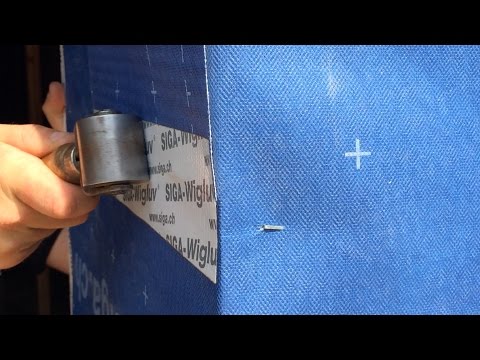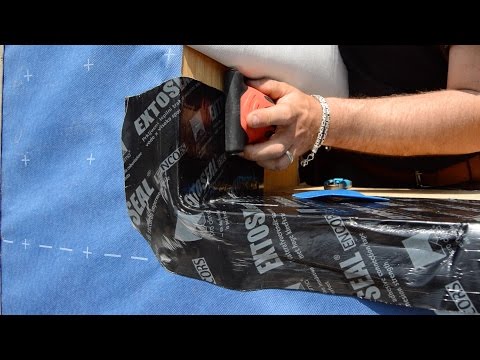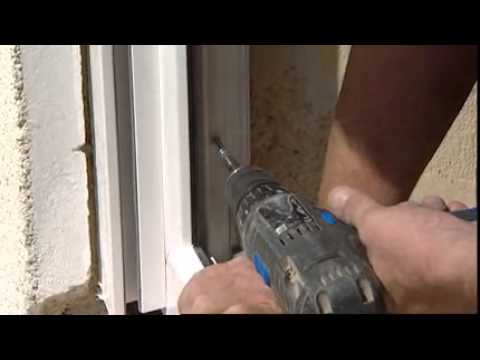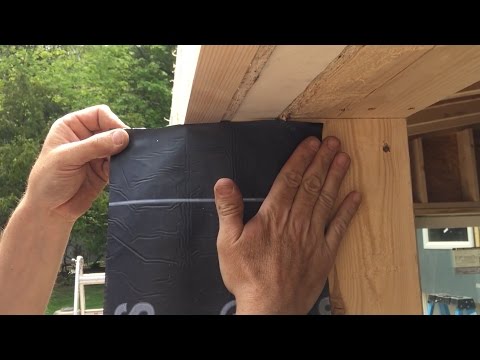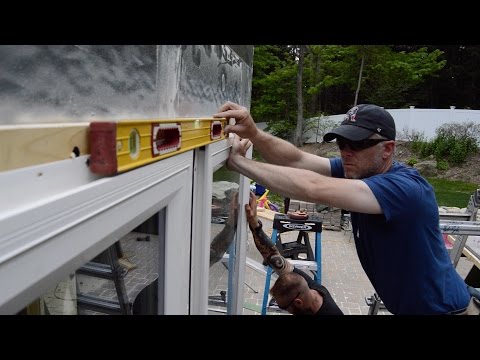The final step: center it in the opening, and seal the perimeter
Now that the sill pan is flashed, and the jambs are taped tight, it's time to prep the windows for installation.
First, Ben and Charles put the window on saw horses to remove the packaging. And there's a lot because these windows came all the way from Ireland.
Ben peels the facing tape from the bottom rail so they can install the deep sill. After cutting the silicone blobs out of the groove, they fill the groove with high performance goop.
Before slipping the sill into the slot, Ben sets some pan head screws into the bottom of the sill. The sill is aligned and screwed into place.
Metal fastening straps lock into the sides of the window, and we're ready to put the window into the hole. Ben uses a couple of airbags to nudge the window into the center of the opening, and hold it in place. In-betweenie windows also need to be centered in and out— so that the sill indexes correctly with the wall.
When it is sitting where they like it, they level the bottom with shims. To plumb the sides, Charles fastens the top straps and then shims them into the plumb position.
He marks the shim depth and then cuts off the excess.
(Charles) "So that they don't protrude out past the window."
And he screws the shims in place.
Outside, Ben peels back the protective film and breaks out his split-release air sealing tape for the jambs and head of the window. First, Ben sticks the tape to the window frame, being careful to avoid any wrinkles or air bubbles, tooling it tight with his little blue squeegee.
Next, he sticks the tape to the weather barrier, again, being meticulous about tooling the tape tightly to avoid bubbles and wrinkles. Then he moves on to the other side and top.
Inside, the plywood bucks are taped to the framing and the window is sealed to the plywood with a low expansion foam.
All that's left to do is revel in the results of the blower door test: .4 air changes per hour, and that's pretty good for a 1930's cabin in the woods.
—Ben Bogie owns Built to Last Design & Build, LLC, in New Milford, CT
Music: Guts and Bourbon by Kevin MacLeod is licensed under a Creative Commons Attribution license.
